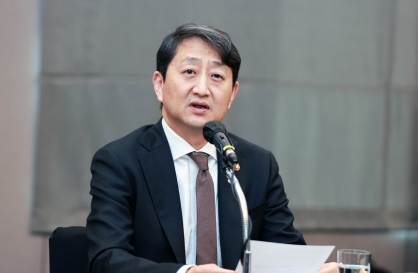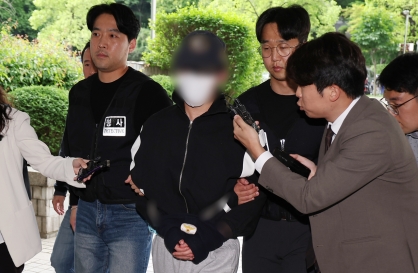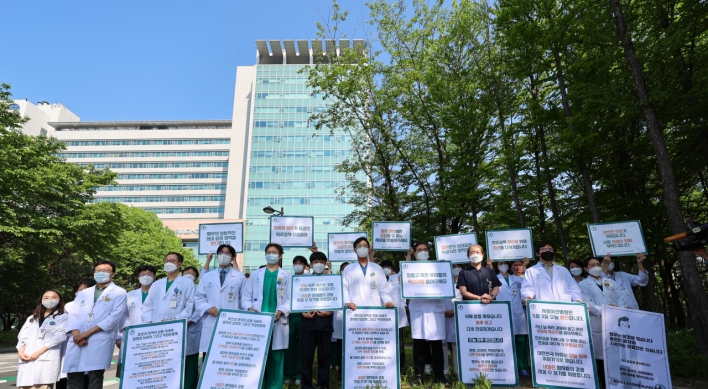As the political parties wind up their selection of candidates for the parliamentary district elections, they have started the process of nominating candidates for election through proportional representation. The ruling Saenuri Party announced its list of 549 applicants. The main opposition Democratic United Party is accepting applications.
Here again, there are do’s and don’ts the parties will have to keep in mind if they are to live up to the spirit of proportional representation and avoid repeating past mistakes.
The parties will have to set fair selection rules, establish transparent nominating procedures and uphold them strictly. To do so is all the more important, given that the electorate is apparently disillusioned by their flawed nominations for the district elections. No wonder complaints abound that parties failed to make good on their promises to conduct fair and impartial nominations.
A case in point involved some men of dubious moral character who won district nominations, apparently for their personal connections to party leaders, only to forfeit them under public pressure. Some failed applicants, claiming they were victims of factional strife in the party, jumped ship to run in the elections as independents or candidates of parties of their choice. No such mistakes must be allowed for proportional representation.
Up for grabs are 54 seats in the 300-member National Assembly. It is no small number by any means, given that it takes only 20 lawmakers to form a parliamentary group empowered to negotiate the operation of the National Assembly.
Under the system of proportional representation, a party that has either gained at least 3 percent of the total votes cast or won in at least five districts is given seats in proportion to the number of votes received. Election by proportional representation is designed to supplement plurality election in single-member electoral districts.
Parties may have different sets of aims they want to achieve through proportional representation. Widely shared among them, however, is the promotion of occupational representation in parliamentary politics. For that purpose, a party may nominate a person deemed to represent an occupation or an interest group that it believes has been underrepresented in its selection of nominees to run in district elections.
Proportional representation may be used to tap an available pool of expertise and talent. For instance, a party may offer a proportional representation seat to a person whose expertise it needs very much in advancing its policy goals when that person does not wish to run in a district election for whatever reason. In that case, it may choose to put them on or near the top of its proportional representation list.
Proportional representation may be used to give political voice to minorities. Commendable in this regard is the Saenuri Party’s move to nominate a Philippine-Korean woman. Another group that is underrepresented in parliamentary politics is people in their 20s and 30s. It is encouraging to see all parties seriously considering nominating two or more people in these age groups.
But the parties are well advised to take great caution in nominating those who have risen to instant fame. Their nominations may help the party endear itself to the electorate. But it would be a setback to the party if they prove to be unsuitable to be a lawmaker. One such person is a nominee of the minor United Progressive Party, who called the naval base under construction on Jeju Island a “base for pirates.”
The Democratic United Party has recently made public a set of criteria that will be used in screening applicants for proportional representation. Other parties are set to follow suit sooner or later, as they are set to complete their nomination process next week.
The parties will do well to uphold the criteria strictly, instead of repeating their past mistakes. In the past, party factions were accused of divvying up the nominations. Rumors already have it that some party big shots in the Saenuri and Democratic United Parties are throwing their weight behind their favored applicants.
Here again, there are do’s and don’ts the parties will have to keep in mind if they are to live up to the spirit of proportional representation and avoid repeating past mistakes.
The parties will have to set fair selection rules, establish transparent nominating procedures and uphold them strictly. To do so is all the more important, given that the electorate is apparently disillusioned by their flawed nominations for the district elections. No wonder complaints abound that parties failed to make good on their promises to conduct fair and impartial nominations.
A case in point involved some men of dubious moral character who won district nominations, apparently for their personal connections to party leaders, only to forfeit them under public pressure. Some failed applicants, claiming they were victims of factional strife in the party, jumped ship to run in the elections as independents or candidates of parties of their choice. No such mistakes must be allowed for proportional representation.
Up for grabs are 54 seats in the 300-member National Assembly. It is no small number by any means, given that it takes only 20 lawmakers to form a parliamentary group empowered to negotiate the operation of the National Assembly.
Under the system of proportional representation, a party that has either gained at least 3 percent of the total votes cast or won in at least five districts is given seats in proportion to the number of votes received. Election by proportional representation is designed to supplement plurality election in single-member electoral districts.
Parties may have different sets of aims they want to achieve through proportional representation. Widely shared among them, however, is the promotion of occupational representation in parliamentary politics. For that purpose, a party may nominate a person deemed to represent an occupation or an interest group that it believes has been underrepresented in its selection of nominees to run in district elections.
Proportional representation may be used to tap an available pool of expertise and talent. For instance, a party may offer a proportional representation seat to a person whose expertise it needs very much in advancing its policy goals when that person does not wish to run in a district election for whatever reason. In that case, it may choose to put them on or near the top of its proportional representation list.
Proportional representation may be used to give political voice to minorities. Commendable in this regard is the Saenuri Party’s move to nominate a Philippine-Korean woman. Another group that is underrepresented in parliamentary politics is people in their 20s and 30s. It is encouraging to see all parties seriously considering nominating two or more people in these age groups.
But the parties are well advised to take great caution in nominating those who have risen to instant fame. Their nominations may help the party endear itself to the electorate. But it would be a setback to the party if they prove to be unsuitable to be a lawmaker. One such person is a nominee of the minor United Progressive Party, who called the naval base under construction on Jeju Island a “base for pirates.”
The Democratic United Party has recently made public a set of criteria that will be used in screening applicants for proportional representation. Other parties are set to follow suit sooner or later, as they are set to complete their nomination process next week.
The parties will do well to uphold the criteria strictly, instead of repeating their past mistakes. In the past, party factions were accused of divvying up the nominations. Rumors already have it that some party big shots in the Saenuri and Democratic United Parties are throwing their weight behind their favored applicants.
-
Articles by Korea Herald









![[K-pop’s dilemma] Time, profit pressures work against originality](http://res.heraldm.com/phpwas/restmb_idxmake.php?idx=644&simg=/content/image/2024/05/08/20240508050705_0.jpg&u=20240508171126)

![[K-pop’s dilemma] Can K-pop break free from ‘fandom’ model?](http://res.heraldm.com/phpwas/restmb_idxmake.php?idx=644&simg=/content/image/2024/05/09/20240509050541_0.jpg&u=20240509173751)







